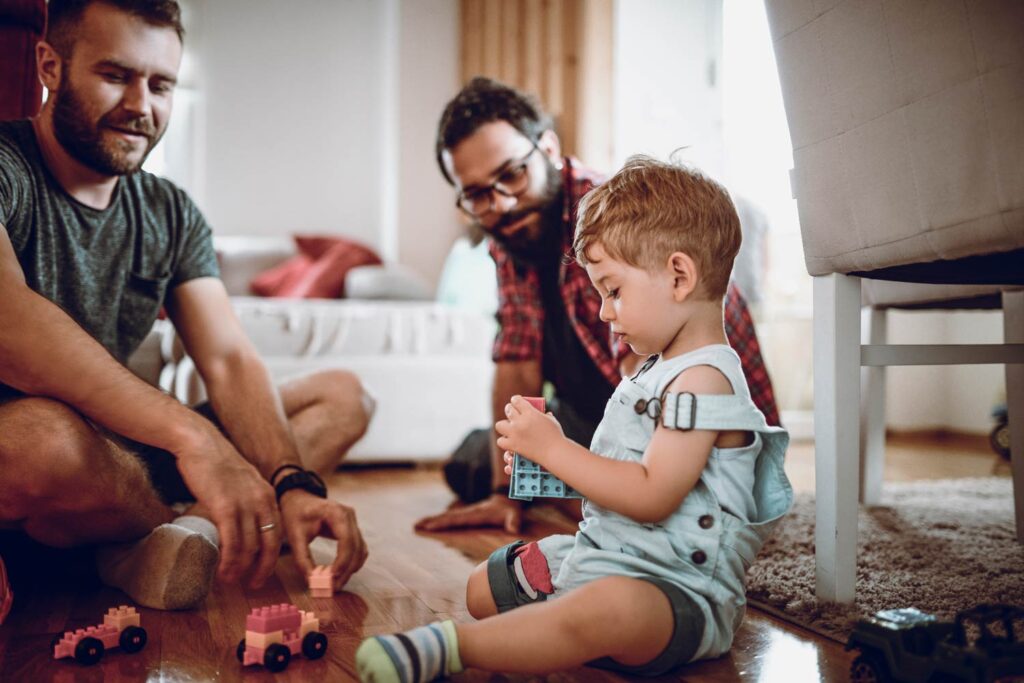
Becoming a foster carer is one of the most rewarding and fulfilling decisions you could make. Getting started can be a little intimidating, so we’ve made this simple guide to show you the steps involved in becoming a foster carer…
Part one: Initial visit and consultation
Once you’ve completed the quiz and we have your details, one of our team members will be in contact to discuss your expression. We’ll provide you with a household safety pack with guidelines on how to ensure your home environment meets the minimum required standards.
We’ll also organise to have a ‘Get to know you’ chat where we share some information on foster caring and the Mercy Community values and principles. This meeting will be an opportunity for you to learn more about becoming a foster carer and understand what to expect when caring for a foster child. By the end of this meeting, you’ll have a greater understanding about your decision on whether foster caring is right for you and your family at this point in your lives.
Part two: Pre-Service Training
In order to become a foster carer, it’s mandatory for you to complete a Quality Care Getting Ready to Start training course. This course totals about 12 hours and will support you to develop the skills and knowledge required to provide quality care to children and young people in out-of-home care.
The course is competency-based, and attendees will need to return completed worksheets at the end of the course (don’t worry, you’ll have no shortage of help). If fostering with a partner, it is a requirement that both attend training. Training is offered several times a year at a variety of venues to ensure you have ample opportunity to attend.
Part three: Formal application
Now that you’ve successfully completed your house check and passed the Quality Care Pre-Service Training Course, you’ll be invited to make a formal application to become a foster carer.
This application requires a range of medical and criminal history checks including traffic history, criminal history, domestic violence and child protection. Personal and employment references are also part of the formal application process and you’ll be required to apply for a Blue Card.
A qualified foster care worker will meet you and the members of your household, to conduct an in-home assessment. Usually, a total of three to six meetings is required however this varies depending on the information relevant to the household and the number of people within it.
The assessment includes topics such as:
- Motivation to foster
- Parenting style, relationships and childhood history
- Stress management strategies
- Anticipated impact upon your family, health and well-being
- Cultural awareness
- Ability to work as part of a team
This assessment will help both you and the foster care worker to determine the age range, number of children and level of children’s needs that you and your family are best suited to caring for. It’s designed to help you and our team explore your suitability to become a foster carer, and also to let us know how to best support you once you are an approved foster carer.
Part four: Approval
After the assessment, your foster care worker will give you with the opportunity to read through the Assessment Report to ensure the content is factually correct and then will present the report to the Foster Care Panel on your behalf. This panel includes a manager along with other staff from Child Safety Services, and also a representative from Foster Care Queensland.
Once your assessment is approved by the panel, you will officially be ready to provide valuable care for the most vulnerable children in Queensland!
At Mercy Community, we aim to support you at every step of the journey. We provide after-hours on-call support to all carers, as well as an allocated worker with whom you can build a professional relationship. We also offer regular carer gatherings to give foster carers opportunities to link with more experienced carers.
Welcome to Foster Care!